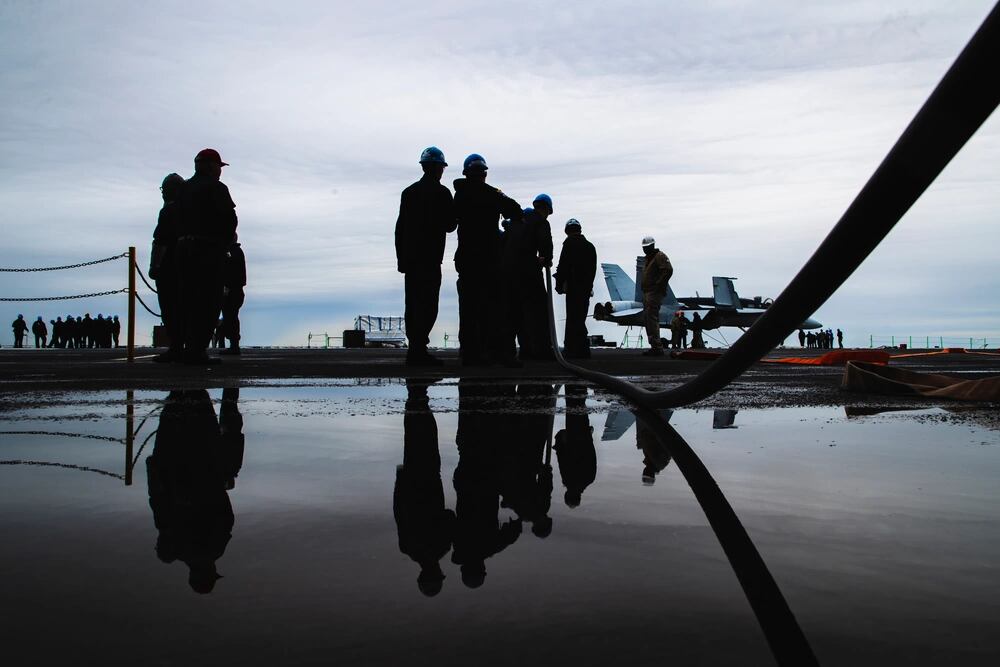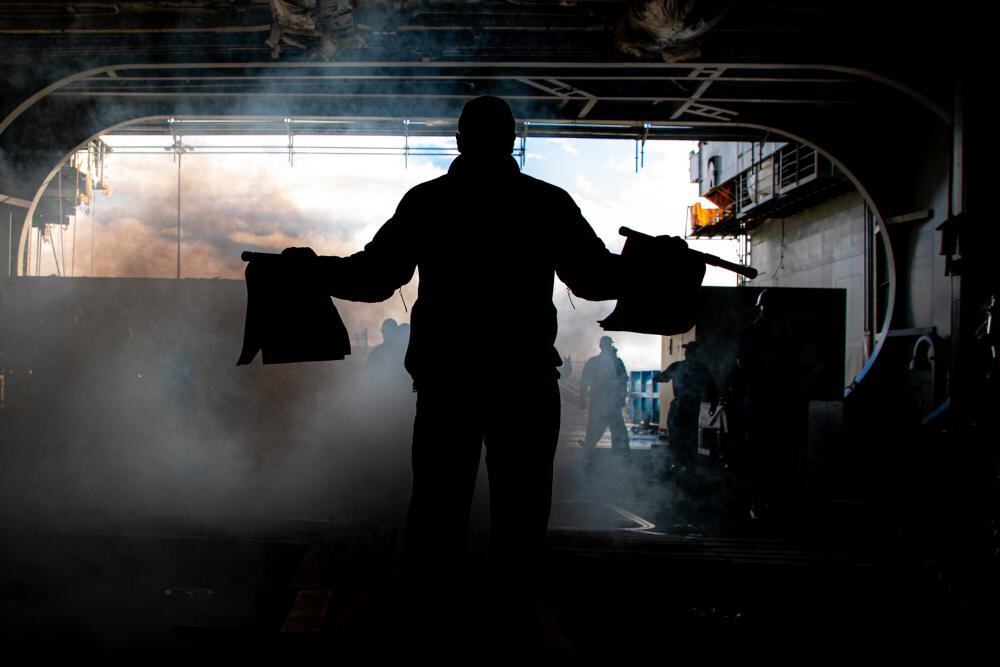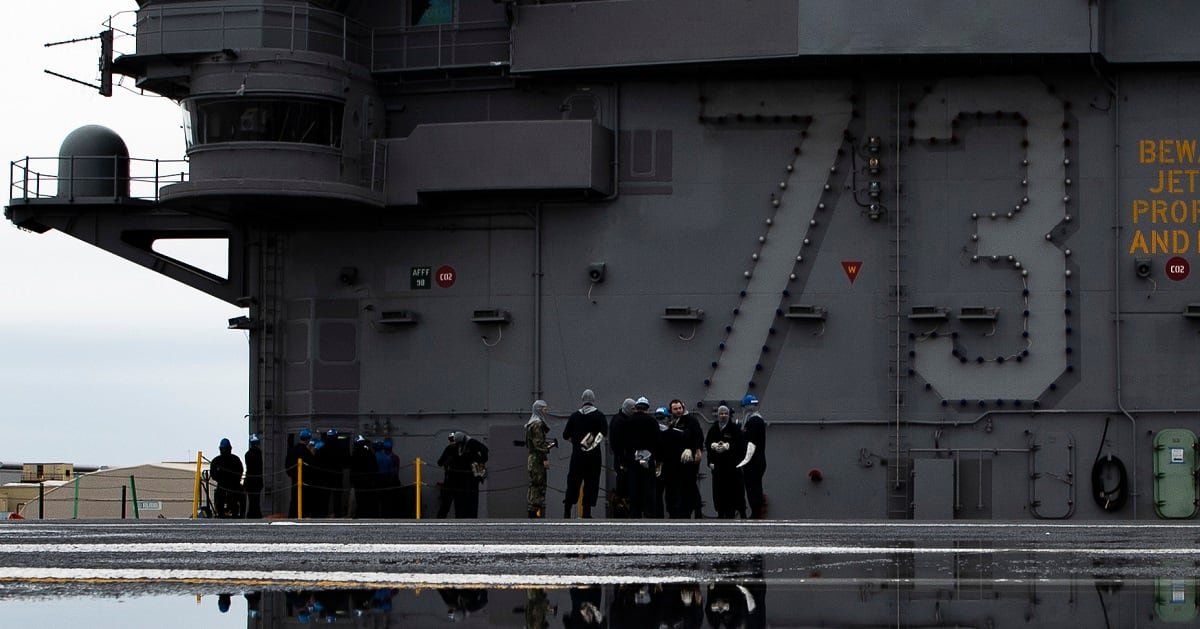The Navy is executing quality of life reforms for sailors at shipyards following a series of suicides aboard the aircraft carrier George Washington — but there is still a lot more work to be done, Navy officials say.
Included in the changes are expanding health-care and Wi-Fi access for sailors, guaranteed off-ship and off-shipyard housing, and consolidated parking, according to Adm. Scotty Gray, the Navy’s quality of service cross-functional team lead.
“Our research has confirmed the obvious, something we all knew: nobody joins the Navy to conduct years of important industrial maintenance,” Gray told reporters Monday. “It’s unsatisfying and undercuts their interest in the service.”
The George Washington, which suffered three deaths by suicide over the course of six days in April 2022, started undergoing its mid-life refueling and complex overhaul, or RCOH, at Huntington Ingalls Industries–Newport News Shipyard in August 2017.
But the work took far longer than originally envisioned and some sailors were made to live on the ship while it was essentially a sprawling construction zone.
RELATED

While an investigation released in December 2022 determined that the suicides were not related, the report also revealed the nature of the challenging work environment at Newport News Shipbuilding, and how it had negatively affected sailors.
Furthermore, a separate quality-of-life investigation released in May recommended nearly 50 changes to bolster mental health resources, improve parking options and other basic amenities in the yards, among other things.
To tackle these issues, then-Chief of Naval Operations Adm. Michael Gilday and Secretary of the Navy Carlos Del Toro ordered in May the creation of a team to establish various standards for quality of service at Newport News Shipbuilding, which could then expand to the entire fleet.
In the past six months, the team has ensured sailors have housing options off-site, updated housing and recreational buildings, while guaranteeing that sailors have access to healthy food options within 20 minutes of their living and working facilities.
Additionally, the task force is also forging ahead on improving Wi-Fi connectivity, and has already provided sailors free, high-speed Wi-Fi aboard the aircraft carrier John S. Stennis’ berthing barge as it undergoes its RCOH.
A pilot program set to begin next year will evaluate the feasibility of increasing Wi-Fi across the waterfront, and eventually to the whole service, Gray said.
RELATED

“We’re doing this pilot to make sure that we’re getting our money’s worth, that the sailors appreciate and are using that service,” Gray said. “We will learn from that pilot and then the intention is, from what we learned, make some adjustments, and roll it out Navy-wide so that we can ensure that we get it right.”
The team has also cut down on average wait times for standard medical appointments at Newport News Shipbuilding, and introduced primary and women’s care to the shipyard as well.
“I feel good about what we’ve initially done…it’s a tremendous amount of work that remains to be done,” Gray said. “The effectiveness of it will play out over time. But I feel very confident that the things that we’re doing will begin to make a difference.”
Troops and veterans experiencing a mental health emergency can call 988 and select option 1 to speak with a VA staffer. Veterans, troops or their family members can also text 838255 or visit VeteransCrisisLine.net for assistance.





